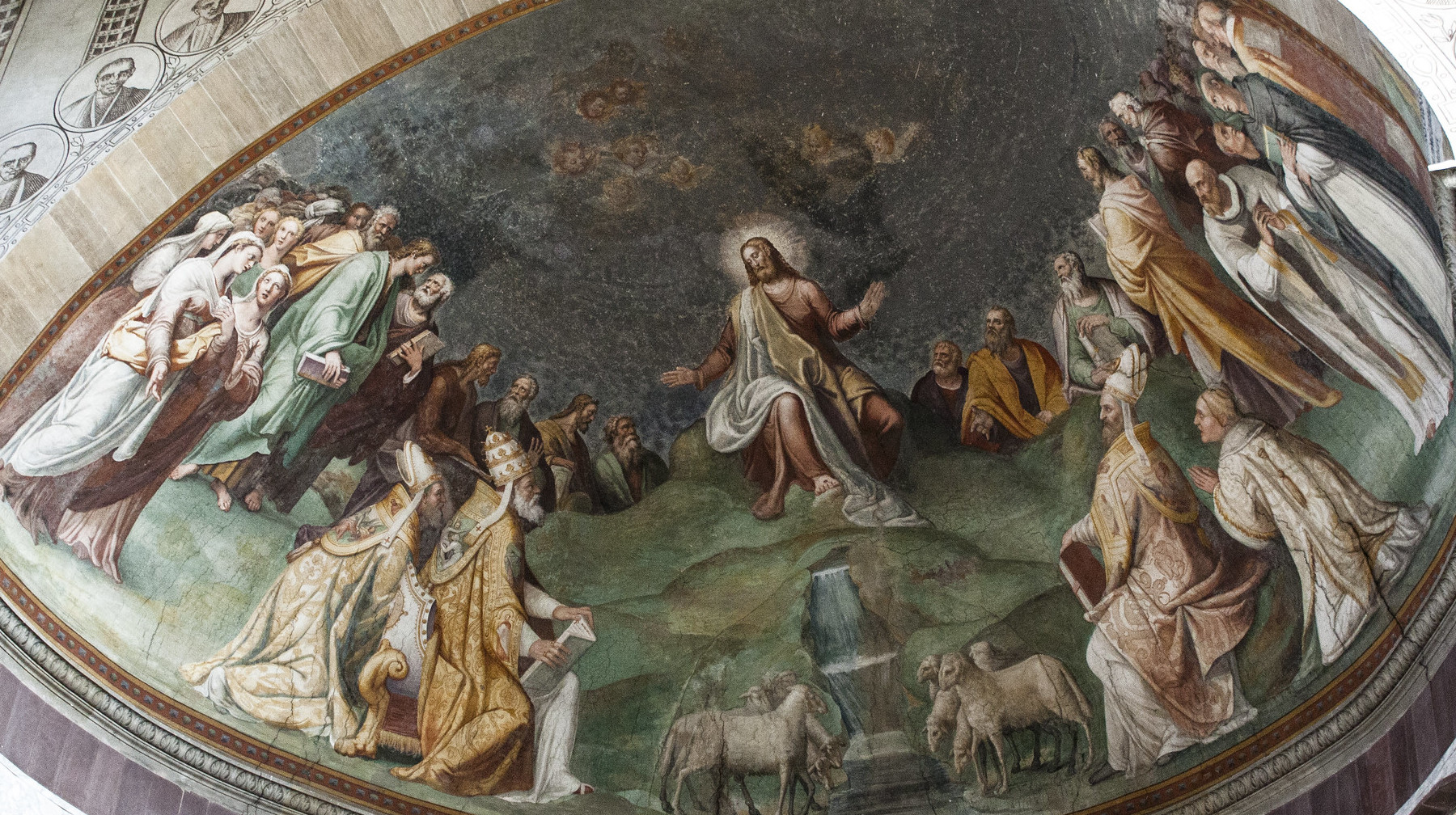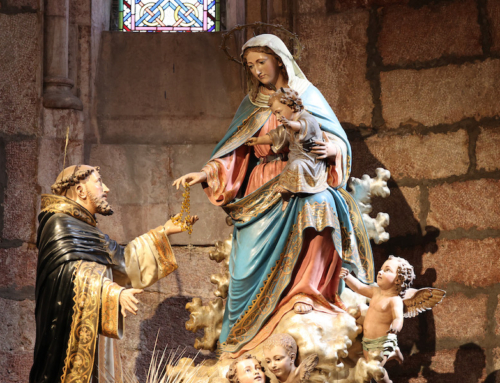Lectio Divina: A Meditation on the Gospel for Sunday
With the Gospel reading from the upcoming Sunday Mass as its principal source-text, each Lectio Divina (“Sacred Reading”) essay offers a prayerful meditation of the Sacred Scriptures—one which draws from the wealth of biblical literature, as well as the prayer life of the individual author.
The world is full of uncertainty. Job security, family matters, the upcoming presidential election, and the coronavirus pandemic, just to name a few. The uncertainty about the outcome of all these things can leave us with fear. We would like to know how these things are going to end, but we don’t fully know. Certitude through human reasoning alone has its limits.
One thing that we can have certainty in is God and the knowledge he reveals to us about himself through faith. Faith, as belief and trust in God, increases our knowledge of who God is. When we have certitude about who God is, we also have certitude about the goodness of God. God in himself possesses all goodness.
God by his grace moves our human intellect to understand his goodness and to desire it in our will. God understood as the supreme good is the ultimate good that our will is created to desire.
The fears, anxieties, and troubles we encounter in the world due to uncertainty in our knowledge, are put to ease when we have friendship with God. Friendship with God gives us peace. This friendship with God is founded in faith and sustained by love. This call to friendship is present in this Sunday’s gospel through the commandment Jesus gives to the Pharisees.
When the Pharisees heard that Jesus had silenced the Sadducees, they gathered together, and one of them, a scholar of the law tested him by asking, “Teacher, which commandment in the law is the greatest?” (Matt 22:34–36)
The Pharisees, who are the lawgivers, are frustrated with Jesus’ teachings. They don’t understand his teachings which seem to contradict their Jewish law. They decide to ask Jesus a question about the greatest commandment. Jesus, as Son of the Father, desires a friendship with the Pharisees. He wants them to know the truth of who he is and who God is and to recognize his goodness. He wants them to love God.
He answers the Pharisees with the following commandment:
You shall love the Lord, you God, with all your heart, with all your soul, and with all your mind. This is the greatest and the first commandment. (Matt 22:37–38)
The commandment to love God above all else is a challenging one, but it is not impossible. God’s grace moves our will toward doing his will. We are free to love God with our whole heart, soul, and mind when we know him through faith. Jesus reveals the necessity of faith in giving this commandment. We cannot love what we do not know. Faith as knowledge of God allows us to love him with our entire being.
When we have friendship with God we desire to please God. Our will takes on the divine will when we have friendship with God. Our life finds its purpose and meaning in this divine friendship.
The whole of the Christian life is ordered toward finding divine love and reveling in it. When we feel discouraged and confused, we can make acts of charity in our daily prayers to increase our love for God. We ease the uncertainty in our lives by ordering our life toward this divine friendship and finding that everlasting peace that comes with it.
✠
Photo by Lawrence Lew, O.P. (used with permission)







